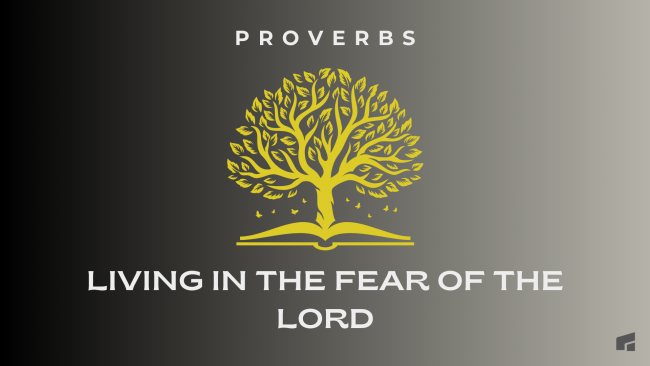
“Whoever meddles in a quarrel not his own is like one who takes a passing dog by the ears.” (Prov 26:17)
This is what we call a “proverb,” and it’s from the Old Testament book of Proverbs. This is a favorite part of God’s word, because of verses like this one: you get bite-size nuggets of truth about things that help us know how to live well. Some have even defined the “wisdom” we get from Proverbs and other Wisdom books of the Bible—Job, Psalms, Proverbs, Ecclesiastes, Song of Solomon—as “skill in living.” Given the complexity and unexpectedness of life in this world, we need it!
Proverbs like this one are powerful because they take something pretty obvious, not grabbing a strange dog by it’s ears, and they combine it with something less obvious we need to understand. Here it’s the truth that sticking our nose in another person’s quarrel isn’t smart. It might be necessary, but don’t kid yourself about what you’re doing. You could easily get bitten pretty badly!
This Sunday we begin a six-week series in Proverbs. Our pattern over the last several years has been to do a short series between Easter and Pentecost Sunday (this year, May 28). Our sermons will be:
- Apr 16 - The Fear of the Lord (1:7; 9:10) - Daniel
- Apr 23 - Trust in the Lord (3:5–6) - John
- Apr 30 - Diligence (12:24, 27) - Benjamin
- May 7 - Watch Over Your Heart (4:23; 9:1–18) - Daniel
- May 14 - Fear of Man (29:25) - Phil
- May 21 - Parenting (29:17) - Daniel
Numbers for the Combination Lock of Proverbs
Bruce Waltke has written and taught on Proverbs extensively.[1] In one series of articles he talked about the six numbers you need to open “the combination lock” of Proverbs.[2] That’s a fitting metaphor for Proverbs, since many feel like riddles you need to solve.
The first number of the lock is understanding the book's genre. This book is distinct because of its style and form of writing. The pithy couplets of Proverbs like the one above are very different from the lengthy historical narratives of Genesis or the story of David in 1–2 Samuel. We read them differently. There is clear evidence of an overall structure to Proverbs but not in the same way as you’d get a beginning, middle, and end of a lengthy story.
The second number of the lock is understanding the book’s authors. We know from the opening verse of Proverbs that “Solomon, son of David, king of Israel” is the primary author of Proverbs. Others are mentioned like “the wise” (22:17) and the unknown figures of “Agur” (30:1) and “King Lemuel” (31:1). Yet, it is Solomon who writes the vast majority. Waltke says these men are distinct and write as “sages” who are “spiritually sensitive.” They also write as “kings by divine right, that is, they spoke their words as oracles from God with the authority of prophets.” They’re also “brilliant,” even “protoscientists” who “probed astronomy, gemology, psychology” and had a great command of language.
The third number of the lock is understanding the book's purpose: “to gain wisdom” (v. 2). The “wisdom” in these “Wisdom” books of the Bible is “skill” of a certain kind. Some call it “skill in living,” but Waltke says it involves “the skill of relating to God and to all kinds of people in order to enjoy an abundant life and to avoid death.”
The fourth number of the lock is to understand the book's audience. Proverbs has an immediate initial audience of the “budding officials in Jerusalem’s royal court,” and thus many of them relate to decisions made by kings. But Israel’s youth are also in view, which is why they are preserved. And then the audience is all God’s people, which is why they’re preserved in our Bible. They speak to each of these audiences.
The fifth number of the lock is to understand the book’s words. Here Waltke means you need to figure out the words and phrases and sentences to understand what a text is saying—like in any writing. Another aspect of this is knowing when you need other Proverbs to fill out the meaning of a single Proverb.
And the sixth number of the lock is to understand what he calls “the fear of ‘I AM,’” or, “the fear of the LORD.” Remember, “LORD” in our Old Testament is the English representation of the Hebrew YHWH or “I AM” (Exod 3:14). With this number in our combination lock, we go from what could be said of any ancient proverb (like those of Egypt) to what is uniquely true of Proverbs. Without a true “fear of the LORD” you simply can’t know true wisdom and true knowledge and true insight. “Fear of the LORD” in Proverbs means a commitment to God’s revelation in the Bible and also a response to the Lord with “fear, love, and trust.” To the people of God, “the fear of ‘I Am’” and “the love of ‘I Am’” are equivalent ways to speak of our right response to him.
We hope this series encourages and challenges you as you get a greater understanding of this rich part of our Bibles.
Daniel
[1] His most significant work is his two-volume commentary on Proverbs in the NICNT series.
[2] Four articles published for Bibliotheca Sacra 165 No 657–660 (2008).
Previous Post
